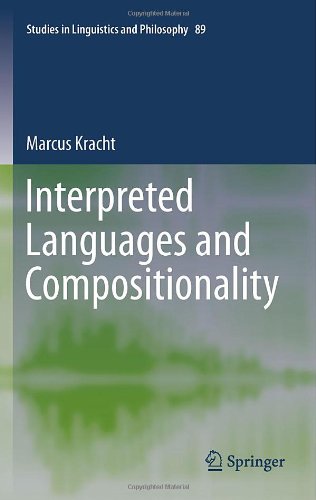

Most ebook files are in PDF format, so you can easily read them using various software such as Foxit Reader or directly on the Google Chrome browser.
Some ebook files are released by publishers in other formats such as .awz, .mobi, .epub, .fb2, etc. You may need to install specific software to read these formats on mobile/PC, such as Calibre.
Please read the tutorial at this link: https://ebookbell.com/faq
We offer FREE conversion to the popular formats you request; however, this may take some time. Therefore, right after payment, please email us, and we will try to provide the service as quickly as possible.
For some exceptional file formats or broken links (if any), please refrain from opening any disputes. Instead, email us first, and we will try to assist within a maximum of 6 hours.
EbookBell Team

4.1
30 reviewsThis book argues that languages are composed of sets of ‘signs’, rather than ‘strings’. This notion, first posited by de Saussure in the early 20th century, has for decades been neglected by linguists, particularly following Chomsky’s heavy critiques of the 1950s. Yet since the emergence of formal semantics in the 1970s, the issue of compositionality has gained traction in the theoretical debate, becoming a selling point for linguistic theories.
Yet the concept of ‘compositionality’ itself remains ill-defined, an issue this book addresses. Positioning compositionality as a cornerstone in linguistic theory, it argues that, contrary to widely held beliefs, there exist non-compositional languages, which shows that the concept of compositionality has empirical content. The author asserts that the existence of syntactic structure can flow from the fact that a compositional grammar cannot be delivered without prior agreement on the syntactic structure of the constituents.